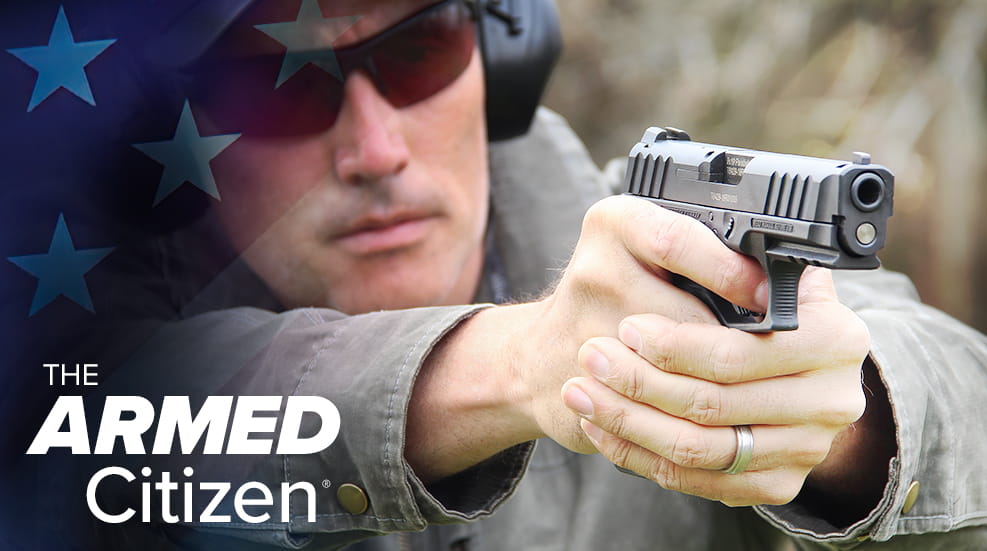
A sweeping anti-Second Amendment measure passed recently by the Massachusetts legislature and signed by Gov. Maura Healey (D) will wreak havoc on the Second Amendment-protected rights of gun owners in the commonwealth.
The measure, H. 4885, passed the Massachusetts Houses of Representatives and Senate by votes of 123-44 and 35-5, respectively. Gov. Healey signed the bill on July 25. The “radical” measure is one of the “most-extreme gun control bills in the country,” according to the NRA Institute for Legislative Action (ILA).
“With Governor Healey’s signature, Massachusetts has enacted one of the most-egregious and freedom-restricting laws in the history of the Commonwealth,” said Randy Kozuch, NRA-ILA executive director. “We are thankful for the bipartisan group of legislators who stood against gun registries and the banning of commonly owned firearms and standard magazines.”
“NRA will be challenging this law to restore the rights guaranteed to Bay Staters by the U.S. Constitution,” said Kozuch.
Among other things, the law adds a number of firearms to the commonwealth’s list of banned so-called “assault weapons,” which, of course, are just common semi-automatic rifles, pistols and shotguns used by law-abiding Americans for everything from sport shooting and competition to hunting and home defense. Another provision raises the age to own a semi-automatic rifle or shotgun to 21 years of age.
Yet another portion of the law makes the commonwealth’s “red-flag” statute even more onerous for gun owners and their right to due process. The measure redefined the state’s “extreme-risk protection order” as “an order by the court that orders: the immediate suspension and surrender of any license to carry firearms or firearm identification card that the respondent may hold; the respondent to surrender all firearms or ammunition that the respondent then controls, owns or possesses; and that the respondent shall be ineligible for any new license to carry or firearm identification card for the duration of the order; provided, however, that an extreme risk protection order shall be in effect for up to 1 year from the date of issuance and may be renewed upon petition.”
The law also makes the state’s current ban on standard-capacity magazines even more onerous. The new law defines a “large capacity feeding device” as: “a fixed or detachable magazine, belt, drum, feed strip or similar device that has a capacity of, or that can be readily converted to accept, more than 10 rounds of ammunition or more than 5 shotgun shells; or any part or combination of parts from which a device can be assembled if those parts are in the possession or control of the same person.”
In addition, the law instructs the Department of Criminal Justice to set up a real-time electronic firearms registration system and dictates that: “All firearm transactions within the commonwealth, including, but not limited to, all purchases, sales, rentals, leases, loans or other transfers shall be reported to the electronic firearms registration system.”
Other provisions within the law include expanding the definitions for modifications and parts that could convert a semi-auto into a full-auto firearm and banning them, prohibiting so-called “ghost guns,” and expanding the list of places where carrying a firearm is banned to include government buildings, polling places and schools. The law further requires standardized safety training, including a live fire component, for all firearm license applicants; establishes a commission to study the funding structure for violence prevention services; and establishes a commission to study the status, feasibility and utility of smart guns and microstamping.
Anti-Second Amendment lawmakers managed to fast-track the measure, pushing it through both chambers on the same day. That left pro-gun organizations and interested gun owners little time to review the legislation, much less lobby against its passage.
The measure also includes several provisions that will have a negative impact on hunters in the commonwealth, according to the Congressional Sportsmen’s Foundation (CSF). To hunt, a resident must now obtain a Firearm Identification Card (with an instructor approved by the Colonel of State Police, an approved writing curriculum and a live fire exercise in an environment where ranges are increasingly more difficult to access), purchase a firearm that is not listed as prohibited and register that firearm.
The law also pretty much bans nonresident hunting with firearms since it dictates that nonresident hunters cannot possess a firearm within Massachusetts unless their state has similarly restrictive laws. And the section of the law raising the age requirement for owning a semi-automatic rifle or shotgun will also affect young adult hunters.


































